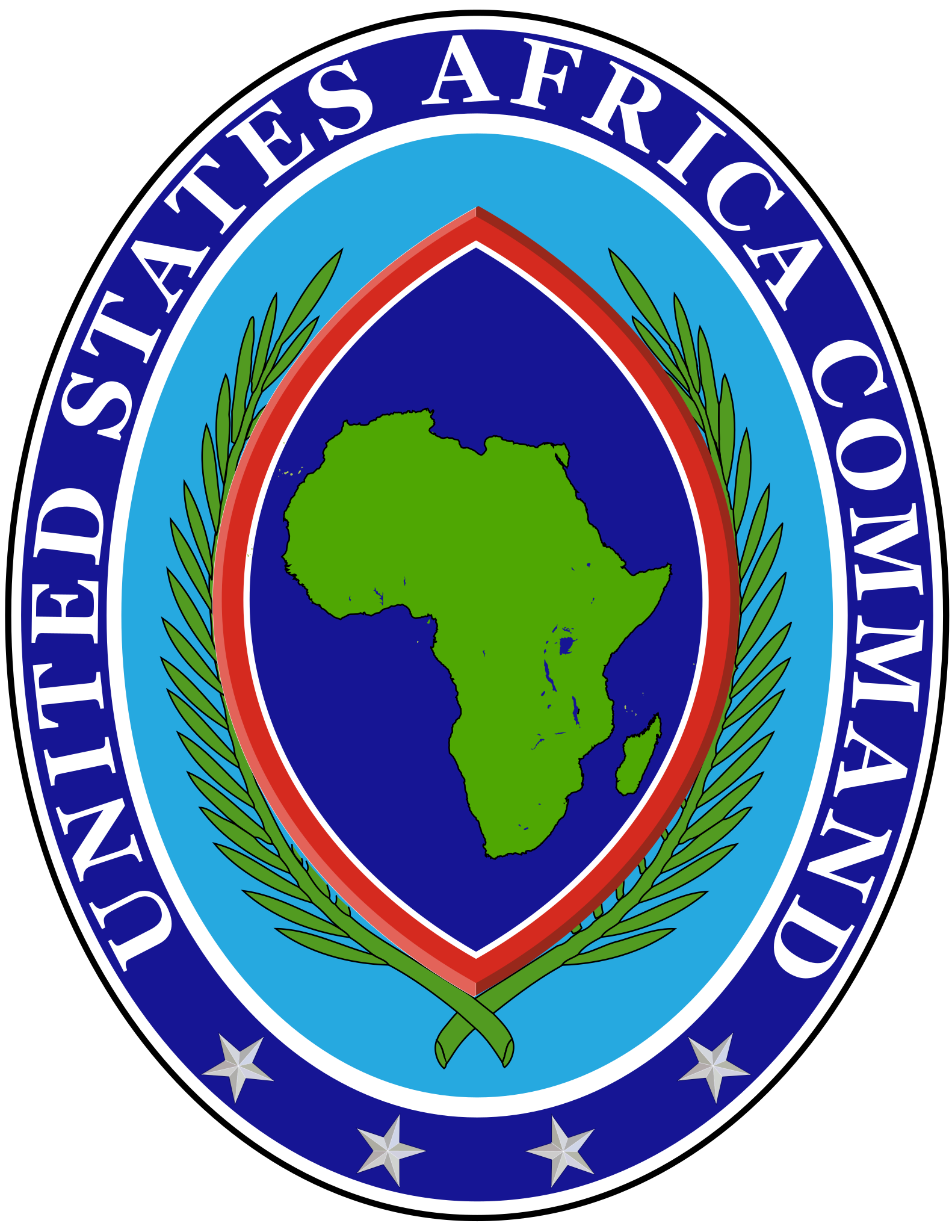United States Africa Command: Difference between revisions
From ProleWiki, the proletarian encyclopedia
More languages
More actions
m (Image.) Tag: Visual edit |
(History) Tag: Visual edit |
||
| Line 1: | Line 1: | ||
[[File:Africom.png|thumb|286x286px|Seal]] | [[File:Africom.png|thumb|286x286px|Seal]] | ||
The '''United States Africa Command''', also known as '''AFRICOM''', is a [[United States of America|U.S.]] military command operating throughout [[Africa]]. It is designed to violate international law and self-determination of African [[Nation|nations]]. It is also used to protect U.S. access to African natural resources and limit [[People's Republic of China|China]]'s involvement in Africa.<ref>{{News citation|author=Ajamu Sankofa|newspaper=[[Monthly Review]]|title=Africom Threatens the Sovereignty, Independence, and Stability of the African Continent: A Position Paper of the National Conference of Black Lawyers|date=2008-01-29|url=https://mronline.org/2008/01/29/africom-threatens-the-sovereignty-independence-and-stability-of-the-african-continent-a-position-paper-of-the-national-conference-of-black-lawyers/|archive-url=https://web.archive.org/web/20220518194553/https://mronline.org/2008/01/29/africom-threatens-the-sovereignty-independence-and-stability-of-the-african-continent-a-position-paper-of-the-national-conference-of-black-lawyers/|archive-date=2022-05-18|retrieved=2022-06-17}}</ref> | The '''United States Africa Command''', also known as '''AFRICOM''', is a [[United States of America|U.S.]] military command operating throughout [[Africa]]. It is designed to violate international law and self-determination of African [[Nation|nations]]. It is also used to protect U.S. access to African natural resources and limit [[People's Republic of China|China]]'s involvement in Africa.<ref>{{News citation|author=Ajamu Sankofa|newspaper=[[Monthly Review]]|title=Africom Threatens the Sovereignty, Independence, and Stability of the African Continent: A Position Paper of the National Conference of Black Lawyers|date=2008-01-29|url=https://mronline.org/2008/01/29/africom-threatens-the-sovereignty-independence-and-stability-of-the-african-continent-a-position-paper-of-the-national-conference-of-black-lawyers/|archive-url=https://web.archive.org/web/20220518194553/https://mronline.org/2008/01/29/africom-threatens-the-sovereignty-independence-and-stability-of-the-african-continent-a-position-paper-of-the-national-conference-of-black-lawyers/|archive-date=2022-05-18|retrieved=2022-06-17}}</ref> | ||
== History == | |||
President [[George W. Bush]] announced the creation of Africom on February 6, 2007 and it became fully functional on October 1, 2008.<ref>{{News citation|author=Daniel Volman|newspaper=Monthly Review|title=Africom: From Bush to Obama|date=2008-12-07|url=https://mronline.org/2008/12/07/africom-from-bush-to-obama/|archive-url=https://web.archive.org/web/20210619064444/https://mronline.org/2008/12/07/africom-from-bush-to-obama/|archive-date=2021-06-19|retrieved=2022-07-05}}</ref> | |||
== References == | == References == | ||
[[Category:Imperialist organizations]] | [[Category:Imperialist organizations]] | ||
[[Category:United States of America]] | [[Category:United States of America]] | ||
Revision as of 21:18, 5 July 2022

The United States Africa Command, also known as AFRICOM, is a U.S. military command operating throughout Africa. It is designed to violate international law and self-determination of African nations. It is also used to protect U.S. access to African natural resources and limit China's involvement in Africa.[1]
History
President George W. Bush announced the creation of Africom on February 6, 2007 and it became fully functional on October 1, 2008.[2]
References
- ↑ Ajamu Sankofa (2008-01-29). "Africom Threatens the Sovereignty, Independence, and Stability of the African Continent: A Position Paper of the National Conference of Black Lawyers" Monthly Review. Archived from the original on 2022-05-18. Retrieved 2022-06-17.
- ↑ Daniel Volman (2008-12-07). "Africom: From Bush to Obama" Monthly Review. Archived from the original on 2021-06-19. Retrieved 2022-07-05.
